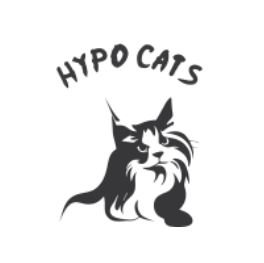Are Mums Toxic to Cats? Understanding the Risks and Safety
Cats are known for their curiosity, often leading them to explore their environment, nibbling on plants, and interacting with household items. If you’re a cat owner and a fan of mums, you may wonder, “Are mums toxic to cats?” This is an important question, especially for cat owners who want to keep their homes safe for their pets. In this article, we will dive into whether mums pose a risk to your cat, the signs of poisoning, how to prevent exposure, and what to do if your cat comes into contact with these plants.
What Are Mums?
Mums, chrysanthemums, are popular flowering plants often found in gardens and homes. Their vibrant colors and appealing blooms make them a favorite for brightening up spaces. However, Are mums toxic to cats? The answer is in the chemicals found in the plant. Mums belong to the Asteraceae family and contain several substances that can be harmful to cats, including pyrethrins, lactones, and sesquiterpene. While these compounds serve as natural insect repellents in the plant world, they are dangerous if ingested by animals, particularly cats.
Are Mums Toxic to Cats? Yes, Here’s Why

Yes, mums are toxic to cats. The toxicity comes from the compounds in the plant that can cause a variety of symptoms in your feline friend. Even small amounts of ingestion can lead to mild or severe health problems.
The main toxic agents in mums are:
- Pyrethrins: Often used in insecticides, these compounds are extremely dangerous for cats. Cats cannot metabolize pyrethrins properly, leading to potential poisoning.
- Lactones and Sesquiterpene: These chemicals can irritate a cat’s digestive system, causing symptoms such as vomiting, diarrhea, and drooling.
Thus, cat owners need to keep mums out of their homes or ensure that their cats don’t have access to these plants.
Symptoms of Mum Poisoning in Cats
If your cat has ingested any part of a mum plant, it’s essential to recognize the symptoms of poisoning early. The severity of the symptoms depends on the amount of plant consumed. Here are some common signs that mums are toxic to cats:
- Drooling: Cats that have ingested a toxic plant may begin to drool excessively. This is an early sign that something is wrong.
- Vomiting and Diarrhea: Both gastrointestinal issues are common when a cat consumes something toxic. These symptoms indicate that the body is trying to expel the harmful substance.
- Incoordination or Tremors: Mums can affect the nervous system of cats, causing tremors, twitching, or difficulty walking.
- Lethargy: A poisoned cat may become unusually tired or weak, a sign that the toxins are affecting the body’s systems.
- Seizures (in severe cases): In extreme cases of mum poisoning, a cat may experience seizures, which require immediate veterinary attention.
If you notice any of these symptoms after your cat has come into contact with a mum plant, it’s crucial to act quickly.
What to Do if Your Cat Eats Mums

If you suspect your cat has eaten mums or any part of the plant, take immediate action. Since mums are toxic to cats, time is of the essence to prevent more serious complications.
Here are the steps you should follow:
- Remove the Plant: First, make sure your cat can no longer access the plant. This prevents further ingestion of toxic materials.
- Check for Symptoms: Carefully observe your cat for any of the symptoms of mum poisoning listed above.
-
- Emergency Treatment: Your vet may recommend bringing your cat in for treatment, which can include inducing vomiting, administering activated charcoal to absorb the toxins, or providing intravenous fluids to support hydration and flush the toxins from the body.
- Monitor Your Cat: After treatment, keep a close eye on your cat. Some symptoms can take time to resolve, and follow-up care may be necessary.
How to Prevent Mum Poisoning in Cats
Here are a few tips:
- Keep Mums Out of Reach: If you have mums in your garden or home, make sure they are placed in areas where your cat cannot access them. Consider using hanging baskets or high shelves to display mums while keeping your feline friend safe.
- Avoid Bringing Mums Indoors: As beautiful as mums are, it may be best to avoid keeping them indoors if you have a cat. Opt for non-toxic plants instead.
- Educate Family and Friends: If family members or friends bring mums as gifts, kindly inform them about the risk to your cat and place the plant in a safe location.
- Use Cat-Safe Plants: If you’re looking for decorative plants, there are many cat-safe alternatives to mums. Some examples include spider plants, African violets, and bamboo palms, which are non-toxic and safe for pets.
Alternative Cat-Safe Plants
To ensure your home is both beautiful and safe for your feline friend, consider choosing cat-safe plants instead of mums. Here are some attractive options that won’t harm your cat:
- Spider Plants: Not only are they safe for cats, but spider plants are also known to purify the air.
- Bamboo Palm: This plant adds a tropical touch to any space and poses no risk to pets.
- Boston Fern: Another pet-friendly option that’s great for adding lush greenery to your home.
- Orchids: Orchids are safe for cats and come in a wide variety of colors and sizes.
These alternatives can brighten up your space without posing any danger to your curious kitty.

Why Cats Are Attracted to Mums
You may be wondering why cats seem so interested in plants like mums. Cats are naturally curious creatures, and many enjoy nibbling on greenery due to instinctual behavior. However, just because a cat is curious doesn’t mean it knows what is safe to eat. Mums are toxic to cats, and they are drawn to them out of curiosity or boredom.
Final Thoughts:
In conclusion, Are mums toxic to cats? Even a small amount eaten can cause serious health problems. The plant’s toxic compounds can cause gastrointestinal distress, neurological symptoms, and, in severe cases, life-threatening complications. As a cat owner, it’s essential to be aware of the risks and take steps to prevent exposure to mums and other toxic plants.
FAQs: Are Mums Toxic to Cats?
- What happens if a cat eats mums?
If a cat eats mums, it can experience symptoms like vomiting, diarrhea, drooling, incoordination, and, in severe cases, seizures. Mums are toxic to cats and can lead to serious health problems. - Are fall mums bad for cats?
Yes, fall mums are bad for cats. They contain toxic compounds like pyrethrins and sesquiterpene, which can cause poisoning if ingested by cats. - What is the most toxic flower to cats?
Lilies are considered one of the most toxic flowers to cats. Even small amounts can cause kidney failure and be life-threatening. - Do cats know how to avoid toxic plants?
Cats do not inherently know how to avoid toxic plants. Their natural curiosity may lead them to chew on or eat plants, even if they are harmful.
RELATED ARTICLE:
Are Sunflowers Toxic to Cats?

Welcome to Hypocats.com! I’m Khawar Akhtar, a passionate writer dedicated to all things feline. With a deep love for cats and a keen interest in their health, diet, and training, I strive to provide cat owners with valuable insights and practical advice to enhance their furry friends’ well-being. My goal is to share my expertise and enthusiasm for our whiskered companions, helping them lead happier, healthier lives. When I’m not writing, you’ll find me spending quality time with my Russian Blue cat, enjoying the simple joys that come with being a cat lover. Thank you for visiting Hypocats.com—I hope you find the information here as helpful and inspiring as I do!


Leave a Reply